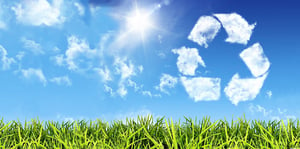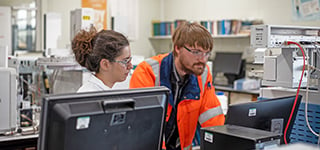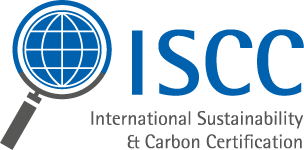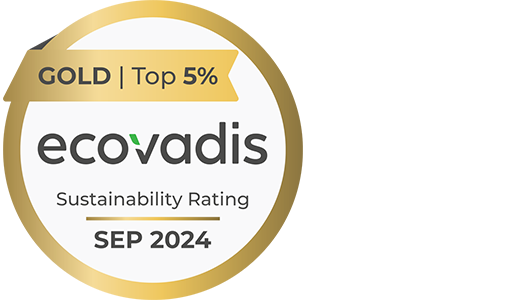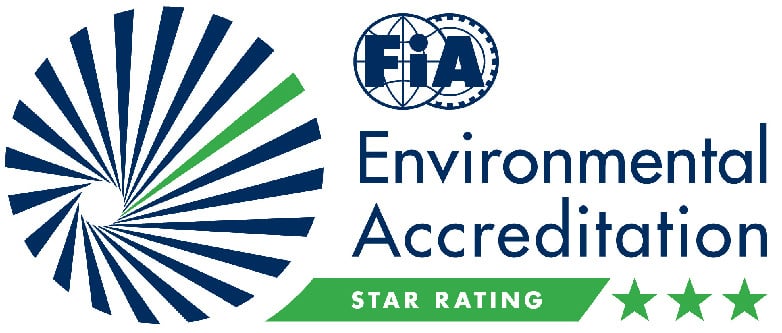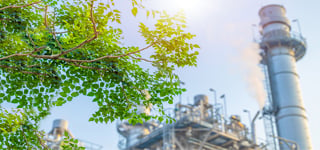
SUSTAINABLE PORTFOLIO
SUSTAINABLE PRODUCT SOLUTIONS INNOVATED BY HALTERMANN CARLESS
Customers benefit from our broad portfolio of sustainable solutions from different raw materials as well as the ISCC PLUS certified mass balance approach. We continuously evaluate new raw materials and develop new ways to manufacture our products more sustainably and efficiently to make the best use of valuable resources.
Our willingness to embrace new ideas and our commitment to sustainability have been part of our corporate culture for generations. As a pioneer for high-quality and sustainable hydrocarbons, we already developed fossil-free products long before the environmental and climate protection became the focus of public attention. The market was not yet ready for our innovations at that time. Nevertheless, for us it was the beginning and the opportunity to build up comprehensive know-how in the processing of biogenic and renewable raw materials.
We have set ourselves an ambitious goal:
By 2030, we want to achieve 50% of our total gross profit with sustainable products.
SUSTAINABLE PRODUCT SOLUTIONS BASED ON DIFFERENT ROUTES
At Haltermann Carless, we serve our customers with a broad range of sustainable solutions produced in different ways. The composition depends on the product, its application and customer demand. Any of our sustainable products can easily be used as drop-in solution without the need to change processes on the customer side.
Making an important contribution to greater sustainability
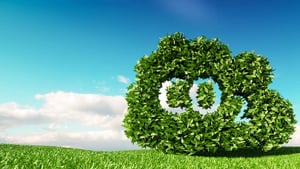
With our mass balanced and ISCC PLUS certified Pentanes (n-/iso-/Cyclopentane), we make an important contribution and support above all the insulation industry on the way to a sustainable circular economy.
More
Haltermann Carless aspires to be the first commercial manufacturer of Sustainable Aviation Fuel in Germany. SAF plays an important role in significantly reducing CO2 emissions in aviation.

We make an important contribution to more sustainability in mobility - thanks to our broad portfolio of renewable fuels and our drive to continuously develop new solutions for our customers.
Learn more →
More/sunflowers_holding-hands_AdobeStock_377856522_copyright-Alekss_1000x500px.jpg?width=300&name=sunflowers_holding-hands_AdobeStock_377856522_copyright-Alekss_1000x500px.jpg)
The Ecobase portfolio, made from 100% renewable resources, reduces CO2 footprint and is ideal for industry, food, and water treatment. ISCC-certified, it’s a versatile drop-in solution for various applications.
More“Being a leading manufacturer of Pentanes, it is a matter of course for us to be at the forefront of sustainable developments. Our mass balance Pentanes offer the same high quality as their conventional counterparts, can be easily integrated into existing production processes and support our customers in achieving their sustainability goals.”


“Being a leading manufacturer of Pentanes, it is a matter of course for us to be at the forefront of sustainable developments. Our mass balance Pentanes offer the same high quality as their conventional counterparts, can be easily integrated into existing production processes and support our customers in achieving their sustainability goals.”


DRIVING PORTFOLIO CHANGE
A key pillar within our sustainability strategy is to support portfolio change by providing companies with sustainable options. Our aim being to facilitate change and to endeavour to ensure that when companies seek to move away from fossil-based material then a sustainable solution is readily available.
The definition of a sustainable product is obviously key and we have determined criteria for our internal calculations.
A product is defined as sustainable for us if it fulfils one or more of the following criteria:
- Bio-based or RFNBO (Renewable Fuels of Non-Biological Origin) content of at least 30%
- Recycled content of at least 50%
- Mass-balance certified content of at least 50%

/globe_iStock-473558826_2500x500px_210316.jpg?width=300&name=globe_iStock-473558826_2500x500px_210316.jpg)
Would you like to learn more about our sustainable products & activities?
BIOGENIC - MASS BALANCE - CIRCULAR
The goal of defossilisation in the chemical industry implies that the feedstocks used in production must no longer come from mineral oil, natural gas and other fossil raw materials. To reduce greenhouse gas emissions, companies rely on biogenic resources and processes and focus on sustainable material cycles.
BIOGENIC FEEDSTOCK
Biogenic resources, also called biogenic materials or biomass, are organic materials derived from living organisms or their waste products.
There are many sources of biomass. Due to sustainability aspects such as the risks of taking product away from food and feed provision and the very real concerns about indirect land use change, waste and residue sources of biomass are preferred. In the so-called Annex IX of the Renewable Energy Directive (RED II), the EU has established sustainability criteria for the energetic use of biomass and thus clearly regulated which materials are permissible in order to be able to manufacture products sustainably in the long term.
The advantage of biogenic raw materials is that they are renewable and already available on a large scale. In addition, they can contribute to reducing CO2 emissions compared to fossil fuels. Biomass plays an important role in the development of more sustainable products and processes in the chemical industry, energy production, agriculture and other sectors. In many cases, biogenic raw materials can replace fossil or synthetic raw materials.

MASS BALANCE APPROACH
The mass balance approach is a key step towards a full circular economy and bioeconomy.
The principle of mass balance enables a high level of transparency and traceability along the entire supply chain. It is an essential tool to reduce dependence on fossil fuels as raw materials and to reduce greenhouse gas emissions.
In practice, this involves mixing fossil raw materials with alternative raw materials with different sustainability characteristics - i.e. recycled, renewable or bio-based raw materials - and processing them together to produce a lower-carbon product.
According to the mass balance method, the amount of renewable raw materials used is mathematically assigned to specific products according to their individual formulation. In the case of mass-balanced products, the biogenic carbon in the end product is therefore not reliably detectable.
An important seal of quality is the ISCC PLUS certification. The International Sustainability & Carbon Certification (ISCC) is a globally recognised system for recycled and bio-based materials.

CIRCULAR MATERIALS
Circular products are part of an approach known as the circular economy. The Circular Economy is about using resources more efficiently, minimising waste and reducing environmental impacts of production and minimising disposal of products.
In the context of the Circular Economy, products are designed and manufactured in such a way that they can be reused, repaired, recycled or otherwise returned to the economic cycle throughout their life cycle.
This approach is becoming increasingly important in various industries and sectors as the world focuses more on sustainability and environmental protection.
